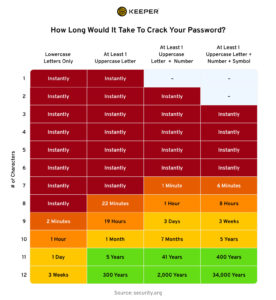Rethink Your Password Routine: Focus on Strength, Not Frequency
Protecting your online accounts starts with a strong password. But how often should you change them? Contrary to popular belief, frequent changes are no longer the golden rule.
Instead, focus on creating robust, unique passwords for each account. These should be long and complex, combining upper and lowercase letters, numbers, and symbols.
Here’s why frequent changes might not be the best approach:
They can lead to weaker passwords: Coming up with new, secure passwords frequently can be challenging. People often resort to predictable patterns or minor variations, making them easier to crack.
Strong passwords are better defense: A single, complex password is more secure than a weaker one changed frequently.
However, immediate password changes are crucial in specific situations:
Data breach: If you suspect your information was compromised, change passwords for all affected accounts immediately.
Suspicious activity: Unusual account activity warrants an immediate password change.
Shared device: Consider changing passwords for sensitive accounts after someone else uses your device.
Remember, prioritizing strong, unique passwords and enabling two-factor authentication (2FA) whenever possible offers better protection than frequent changes. This approach allows you to maintain strong security practices without the burden of constant password updates.
